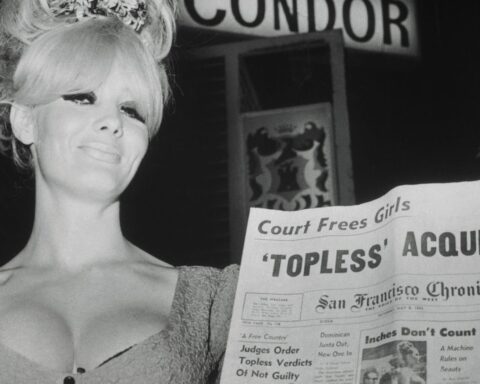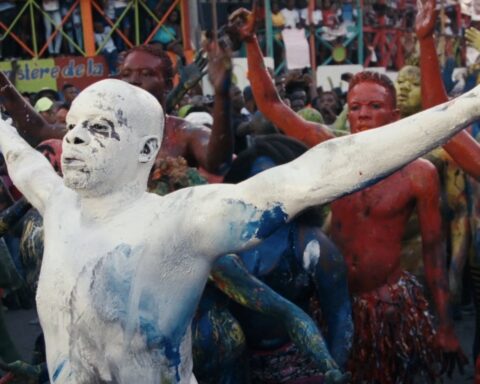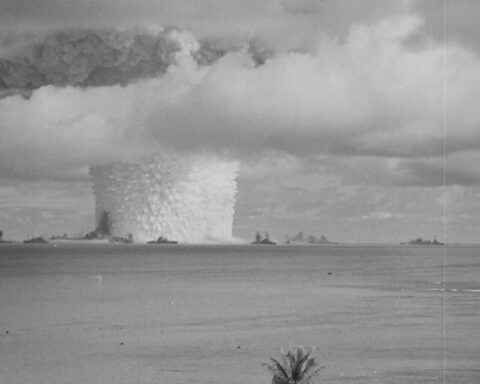Cunningham
(US/France/Germany, 93 min)
Dir. Alla Kovgan
Programme: TIFF Docs (World Premiere)
Two-thirds of Cunningham consists of exquisite dancing choreographed by the iconic American choreographer Merce Cunningham, taking place on sets by the likes of Robert Rauschenberg and Andy Warhol and set to music by John Cage, Morton Feldman, Christian Wolff and their ultra-modernist ilk, shot in sumptuous 3D with the very mobile camera almost becoming a dancer unto itself. For anybody inclined to this kind of work—somehow both coldly intellectual and playful, showing off what well-trained bodies are capable of doing without ever indulging any obvious emotion—it’s a sheer delight. The elaborate twenty-page document sent out after the TIFF press screening I attended, which contains several artist statements along with full credits, makes the case that all dance films should be shot in 3D. On the strength of Cunningham and Wim Wenders’ Pina, about the equally iconic German choreographer Pina Bausch, I can certainly agree with that. It’s thoroughly engrossing.
There’s another third of the film, though. I don’t mean to suggest it’s weak. In fact, the formal idea on which the expository sections placed intermittently throughout the film is based is a good one: director Alla Kovgan eschews talking heads and written voiceover in favour of the voices of Cunningham and Cage et al and interviews with Cunningham’s dancers all taken from archival sources from the 1940s through the 1970s. All of that could work, but I’m not convinced it does here. The dancing is what’s interesting, not so much the brief glimpses of Cunningham the man, the patriarch, the visionary. These bits might provide a decent enough gloss for people unfamiliar with Cunningham and the 50s/60s NYC avant-garde scene (or whatever you want to call it; none of them would have used the word “avant-garde”), but I don’t think they really illuminate the more interesting and controversial aspects of Cunningham’s work and life. Indeterminacy, for instance, gets only a brief explanation, and no mention (that I recall) is made of John Cage’s formative influence on Cunningham’s conception and elaboration of it as a compositional practice. Black Mountain College is not, to my memory, mentioned at all. (As for Cunningham and Cage’s relationship, only its courtship phase makes it into the film, not its decades-long life which only ended with Cage’s death in 1992.)
A more essayistic and less biographical approach would, I think, have served the film well: lead with indeterminacy, not Cunningham, and let philosophical elaborations of that idea inform how we watch the dancing. That said, I don’t want to nitpick what is fundamentally a rapturous presentation of the work of an uncompromising artist and a rare documentary genuinely worth seeing on the big screen.
Visit the POV TIFF Hub for more coverage from this year’s festival!
Cunningham opens in theatres January 10.











